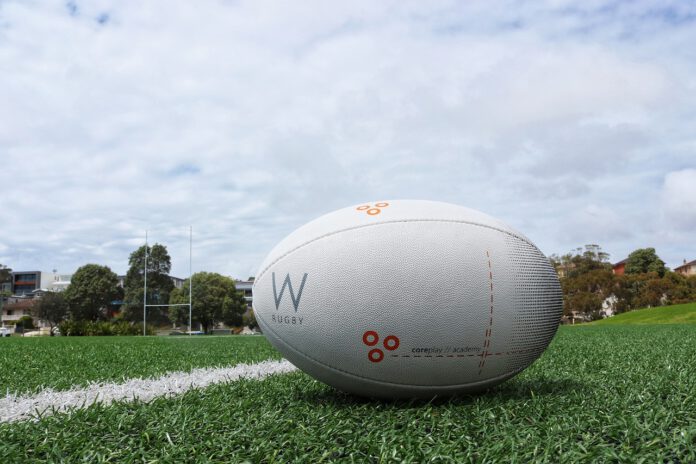Eddie Jones will lead England into his first Six Nations as head coach. Photo: Getty Images
After a chastening World Cup, rugby’s northern-hemisphere powers will begin the long road toward Japan 2019 when the annual Six Nations championship gets underway this weekend.
Despite it taking place in England and Wales, the World Cup demonstrated how firmly the center of the rugby universe has now swung toward the southern hemisphere. For the first time in the competition’s history no European team made it to the semifinals, as New Zealand, Australia, South Africa and even Argentina left them trailing behind. Not only were the southern-hemisphere teams more successful but they achieved their results with an attractive, attacking brand of rugby that left their cousins looking primitive in comparison.
It is possible to see this year’s Six Nations, then, as having some of the sheen taken off it. Yet it also gives all six teams the first chance since those disappointing performances in September and October to start building toward what they will hope to be much more competitive displays in the next World Cup. Here’s how each team is shaping up:
England
No country suffered a more chastening experience at the 2015 World Cup than England. As hosts of the tournament, expectations were high that they could repeat their World Cup win in 2003. Instead, thanks to defeats to Wales and Australia, England crashed out at the pool stage. Head coach Stuart Lancaster quickly resigned as the overhaul began. In his place the Rugby Football Union has turned to a man who presided over one of the performances of the World Cup and certainly its biggest upset, Eddie Jones. As well as leading Japan to victory over South Africa, Jones coached his native Australia for four years, during which his side were defeated by England in the 20003 World Cup final. Already he has made his mark, by replacing captain Chris Robshaw with the controversial figure of Dylan Hartley. With a favorable schedule, England will be chasing just their second title since 2003.
France
While many Six Nations teams surprised in their underperformance at the World Cup, France’s quarterfinal exit courtesy of a mauling from New Zealand was entirely predictable. If not always the most reliable, France had long been one of the most exciting sides to watch in world rugby. Yet in four years under Philippe Saint-Andre they not only lost their flair, but failed to finish higher than fourth in the Six Nations. With the country at a low ebb, they have turned to veteran former Toulouse coach Guy Novès to try and rejuvenate the team. Having vowed to bring back stylish, attacking rugby, Novès has included four uncapped players in his first starting XV.
Ireland
Ireland have huge motivation this time around as they look to become the first team ever to win the Six Nations three times in a row. Still, there are major question marks hanging over Joe Schmidt’s side. For all their success in the Six Nations, the fact that it failed to translate into a breakthrough at the World Cup, where they were humbled in the quarterfinals by Argentina, means Schmidt’s ability to get Ireland playing attacking rugby will be keenly scrutinized . As well a need to look further ahead than simply racking up another Six Nations title by any means necessary, they have immediate concerns with several players unavailable. Not only will Ireland be going into their first matches without now-retired talismanic captain Paul O’Connell, but Peter O’Mahony and Iain Henderson have been ruled out of the tournament as part of lengthy injury list.
Italy
The World Cup demonstrated the huge degree to which Argentina have benefited from now regularly competing with Australia, New Zealand and South Africa in the Rugby Championship. But the same has not been true for Italy since turning the Five Nations into Six in 2000. Indeed, there is an argument that they have even been going backward in recent times. At the World Cup they were well beaten by Ireland and France and only narrowly beat Romania and Canada. Meanwhile, Georgia’s performances suggested that they were now on Italy’s level and had a strong claim for a place in Europe’s showpiece competition. Italy will hope that this Six Nations marks the dawning of a new, brighter era, with coach Jacques Brunel stepping down after the tournament and 10 uncapped players named in the squad.
Scotland
Despite finishing fifth and sixth in the last two editions of the Six Nations, Scotland should enter this year’s tournament on a high. Defying low expectations, of all the European teams Scotland had reason to be most pleased with their efforts at last year’s World Cup. There may have been pain and frustration at the controversial refereeing call that cost them a shock victory against Australia in the quarterfinals, but their performance earned plenty of praise. Having not won their opening match in the Six Nations for a decade, a first contest with an England side in transition could provide a springboard to getting back into the tournament’s top three.
Wales
Champions in 2012 and 2013, Wales only narrowly missed out on the title in a dramatic final-day scramble for glory a year ago. And they will enter this year’s competition with the most settled side and a vastly experienced, physically robust squad. There were was both pride and frustration to be taken from last year’s World Cup, when a wave of injuries didn’t prevent a memorable win over England but did hamper them in a quarterfinal defeat to South Africa. But the likes of Jonathan Davies and Liam Williams are now back available to give Wales a real chance of fresh Six Nations glory. While they will expect to beat Scotland, France and Italy in Cardiff, big tests will come on the road against England and Ireland.
Six Nations Fixtures (all times EST)
Round 1
Saturday, Feb. 6
France vs. Italy (Stade de France, 9:25 a.m.)
Scotland vs. England (Murrayfield, 11:50 a.m.)
Sunday, Feb. 7
Ireland vs. Wales (Aviva Stadium 10 a.m.)
Round 2
Saturday, Feb. 13
France vs. Ireland (Stade de France, 9:25 a.m.)
Wales vs. Scotland (Principality Stadium, 11:50 a.m.)
Sunday, Feb. 14
Italy vs. England (Stadio Olimpico, 9 a.m.)










